In our daily lives, we often encounter situations where someone apologizes to us. Whether it’s a simple misunderstanding or a more serious issue, how we respond to “I’m sorry” can greatly impact our relationships. The right response can mend bridges, foster understanding, and strengthen bonds.
This comprehensive guide offers 75 thoughtful ways to respond when someone says “I’m sorry.” These responses are designed to help you navigate various situations, from personal relationships to professional settings. By choosing the right words, you can create opportunities for healing, growth, and improved communication.
Let’s explore these responses and learn how to use them effectively to nurture healthier, more resilient relationships.
Graceful Acceptance: The Foundation of Healing
1. Simple Acknowledgments
- “Thank you for apologizing. I appreciate it.”
- “I accept your apology.”
- “Your apology means a lot to me.”
- “I’m grateful you took the time to say sorry.”
- “Thank you for acknowledging what happened.”
These straightforward responses are perfect for situations where you’re ready to move past the issue without further discussion.
2. Expressing Appreciation for Sincerity
- “I can tell your apology is sincere, and that matters to me.”
- “Your honesty in this apology is commendable.”
- “I appreciate the sincerity behind your words.”
- “Your genuine apology touches me deeply.”
- “The authenticity in your apology doesn’t go unnoticed.”
When you sense true remorse, acknowledging it can reinforce positive behavior and deepen trust.
3. Recognizing Courage
- “It takes courage to apologize. I respect that.”
- “I know saying sorry isn’t easy. Thank you for being brave.”
- “Your apology shows strength of character.”
- “I admire your willingness to take responsibility.”
- “It’s not always easy to admit mistakes. I appreciate your courage.”
Highlighting the courage it takes to apologize can foster mutual respect and encourage open communication in the future.
Acknowledging Efforts to Make Amends
4. Recognizing Actions
- “I see the effort you’re making to make things right.”
- “Your actions speak louder than words. I appreciate what you’re doing.”
- “I notice the steps you’re taking to correct the situation.”
- “Your efforts to make amends are clear and appreciated.”
- “I can see you’re really trying to fix this. Thank you.”
When someone backs up their apology with concrete actions, acknowledging those efforts can be powerful in rebuilding trust.
5. Appreciating Commitment
- “Your commitment to making things better is evident.”
- “I value your dedication to repairing our relationship.”
- “Your ongoing efforts to improve the situation mean a lot.”
- “I appreciate your consistent work towards making amends.”
- “Your persistent commitment to reconciliation is noteworthy.”
Recognizing long-term commitment can be especially important in healing deeper wounds or addressing recurring issues.
Encouraging Open Communication
6. Inviting Dialogue
- “I accept your apology. Can we talk more about what happened?”
- “Thank you for apologizing. I’d like to share my perspective too.”
- “I appreciate you saying sorry. Let’s discuss how we can prevent this in the future.”
- “Your apology is a good start. Can we have a deeper conversation about this?”
- “I’m glad you apologized. I think it would be helpful if we could talk things through.”
These responses open the door for more in-depth discussions, which can lead to greater understanding and stronger relationships.
7. Expressing Your Feelings
- “I accept your apology. I want you to know that I felt hurt when…”
- “Thank you for apologizing. It’s important to me that you understand how I felt.”
- “I appreciate your sorry. Can I share how this situation affected me?”
- “Your apology means a lot. I’d like to express my feelings about what happened.”
- “I’m grateful for your apology. It would help me if I could explain my perspective.”
Sharing your feelings in response to an apology can foster empathy and prevent future misunderstandings.
Moving Forward: Rebuilding and Strengthening Relationships
8. Focusing on the Future
- “I accept your apology. Let’s focus on how we can move forward.”
- “Thank you for apologizing. How can we work together to prevent this from happening again?”
- “I appreciate your sorry. What steps can we take to strengthen our relationship?”
- “Your apology is accepted. Let’s talk about our expectations going forward.”
- “I’m grateful for your apology. Can we discuss ways to improve our communication?”
These responses shift the focus from the past to the future, encouraging collaborative problem-solving.
9. Offering Forgiveness
- “I forgive you. Let’s put this behind us.”
- “Your apology is accepted, and you are forgiven.”
- “I choose to forgive you. Thank you for apologizing.”
- “With your apology, I’m ready to forgive and move on.”
- “I forgive you, and I’m looking forward to moving past this.”
Explicitly offering forgiveness can be a powerful way to heal and strengthen a relationship, when you’re truly ready to do so.
Handling Complex Situations
10. Addressing Repeated Apologies
- “I appreciate that you’re sorry, but we need to address why this keeps happening.”
- “Thank you for apologizing again. Can we work on strategies to prevent this?”
- “I hear your apology. Let’s focus on making lasting changes.”
- “Your repeated apologies show you care, but let’s work on actual solutions.”
- “I know you’re sorry. How can we break this cycle together?”
These responses acknowledge the apology while emphasizing the need for change, perfect for situations where someone repeatedly apologizes for the same issue.
11. Dealing with Insincere Apologies
- “I hear your words, but I’m having trouble feeling their sincerity. Can we talk about that?”
- “Thank you for apologizing. I’d like to understand what you’re sorry for specifically.”
- “I appreciate you saying sorry. Can you help me understand what led to your actions?”
- “I’m struggling to accept this apology. Can we discuss why that might be?”
- “Your apology seems rushed. Can we take some time to really address what happened?”
When an apology feels insincere, these responses can open up a dialogue about the underlying issues without outright rejecting the apology.
Professional Settings: Apologies in the Workplace
12. Maintaining Professionalism
- “I appreciate your apology. Let’s focus on how we can improve our workflow.”
- “Thank you for acknowledging the issue. How can we prevent similar problems in the future?”
- “Your apology is noted. Can we schedule a meeting to discuss preventative measures?”
- “I accept your apology. Let’s use this as a learning opportunity for the team.”
- “Thank you for taking responsibility. Moving forward, what processes can we implement to avoid this?”
These responses are tailored for professional settings, focusing on solutions and improvements rather than personal feelings.
Cultural Considerations: Apologies Across Cultures
13. Respecting Cultural Differences
- “I understand and accept your apology. In my culture, we usually…”
- “Thank you for apologizing. I appreciate your effort to bridge our cultural differences.”
- “I’m grateful for your apology. Can we discuss how our cultural backgrounds might influence our perspectives?”
- “Your apology is meaningful to me. Let’s explore how we can better understand each other’s cultural norms.”
- “I accept your apology. It would be helpful to share how apologies are typically handled in our respective cultures.”
These responses acknowledge cultural differences and open the door for greater cross-cultural understanding.
The Power of Humor: Lightening the Mood
14. Using Appropriate Humor
- “Apology accepted. Just don’t let it happen again… until next week at least!”
- “I forgive you. But you owe me a coffee… or maybe a small island.”
- “Apology accepted. Your timing is impeccable – I was just about to start a dramatic monologue about betrayal.”
- “Thanks for the apology. I’ll add it to my collection of ‘Times [Your Name] Was Actually Right’.”
- “Apology accepted. But just so you know, I’ve already written you out of my autobiography.”
Use humor cautiously and only when you’re sure it’s appropriate for your relationship and the situation. It can be a great way to diffuse tension and signal that you’re ready to move past the issue.
When You’re Not Ready: Taking Time to Process
15. Asking for Space
- “I hear your apology, and I need some time to process it. Can we talk about this later?”
- “Thank you for apologizing. I’m not ready to respond fully right now. I’ll get back to you when I’ve had time to think.”
- “I appreciate you saying sorry. This is important to me, and I want to respond thoughtfully. Can we revisit this tomorrow?”
- “Your apology means a lot, but I’m still working through my feelings. Can you give me some space?”
- “I’m glad you apologized. I need some time to reflect on this. Is it okay if I reach out when I’m ready to talk?”
These responses are crucial when you need time to process your emotions before fully engaging with the apology.
Conclusion
Responding to “I’m sorry” is an art that requires empathy, emotional intelligence, and often, a good deal of patience. By choosing your response carefully, you have the power to strengthen your relationships, foster open communication, and create an environment of mutual respect and understanding.
Remember, the goal isn’t just to accept an apology, but to use it as a stepping stone towards a stronger, more resilient relationship. Whether you’re dealing with a minor misunderstanding or a major breach of trust, these 75 responses provide you with a toolkit to navigate the complex terrain of interpersonal relationships.
As you practice responding to apologies, you’ll likely find that your emotional intelligence grows, your relationships deepen, and your ability to resolve conflicts improves. In the dance of human interaction, the moments after an apology are precious opportunities for growth, understanding, and connection. Use them wisely, and watch your relationships flourish.


